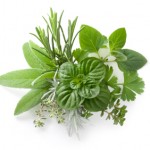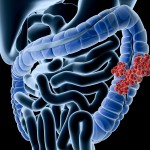I've been skeptical about many of the claims made for herbal medicines, as they're often based on case reports or other empirical data and seldom seen to meet the rigorous standards I'm used to for new medical findings. Yet millions of people over the last four thousand years have used Oriental medicine mixtures and some of those are now being subjected to intense study.
The NIH's National Center for Complementary and Alternative Medicine has a website that provides useful links into this complex and sometimes baffling field. A 2007 survey showed 38% of Americans use CAM, often in the form of dietary supplements, where well-designed clinical trials may be lacking and the safety and effectiveness of the CAM therapy is unclear.
I want to focus on one of these CAM therapies that has been examined in detail and looks exceedingly promising...thus far.
The research of Yung-Chi Cheng, the Henry Bronson Professor of Pharmacology at the Yale School of Medicine, was highlighted in The Wall Street Journal in an article titled, "Chinese Medicine Goes Under the Microscope." He was raised in Taiwan, but his PhD is from Brown University. Now he directs Yale's Therapeutics/Chemotherapy Program and has published ground-breaking work in major research journals.
Dr.Cheng has been studying a traditional Chinese medicine for 12 years. Many of China's 75,000 therapeutic concoctions may seem strange to us, consist of various combinations of 5,000 different plants and have never been tested for efficacy in a fashion we would expect. On the other hand many of our accepted medicines originally came from botanical products. Professor Cheng decided to bridge the gap, studying one particular ancient herbal drug using modern Western methods. Initially he was met with skepticism; his colleagues were concerned that he'd find a lack of consistency in the herbal preparation. Since then Yale sponsored a biotechnology company to ensure uniformity in the plants used to produce the herbal mixture known in the Orient as huang qin tang. Here, as PHY906, it is used with traditional chemotherapy to reduce side effects.
This is a mixture of four different herbs, the flowers of the Chinese skullcap plant, the fruit of the Chinese date tree, Chinese Licorice and Chinese peonies. It's a complex melange, with 62 active chemicals that apparently must be used together, a form of polypharmacy (several drugs being given at the same time). Thus far animal experiments, reported in two scientific journals, BMC Medical Genomics and Scientific Translational Medicine have been very promising ( a conclusion in the former notes it can decrease toxicity in normal cells while promoting tumor cell death) and human Phase II studies are beginning (Phase I clinical trials are small studies looking at safety, Phase II examine efficacy, does the new drug do what its supposed to; Phase III are considerably larger and compare a drug to existing or standard treatments).
In 2003 Professor Cheng went on to establish the Consortium for Globalization of Chinese Medicine which he now chairs. Aims of the international group include using modern methods to ensure quality control of herbals and coordinating clinical trials in disparate areas of the world.
His work was published online in the journal Nature in a 2010 article, "How an 1,800-year-old herbal mix heals the gut." In 2011 he received a $6.7M grant from the National Cancer Institute for his project titled, "Chinese Herbal Medicine as a Novel Paradigm for Cancer Chemotherapy."
I await his study results eagerly.



